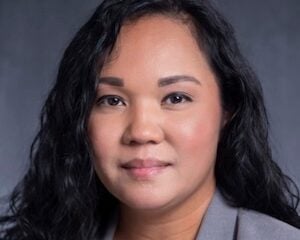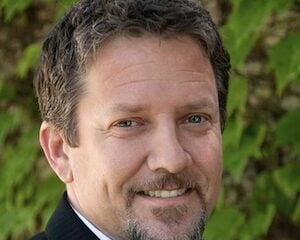Daniel del Solar, 71, believer in progressive public media
 Daniel del Solar, 71, a Chilean-American media activist, poet and photographer who headed training for CPB in its early days and later managed countercultural stations in San Francisco and Philadelphia, died Jan. 13 in Oakland, Calif. He had prostate cancer.
Daniel del Solar, 71, a Chilean-American media activist, poet and photographer who headed training for CPB in its early days and later managed countercultural stations in San Francisco and Philadelphia, died Jan. 13 in Oakland, Calif. He had prostate cancer.
Del Solar served as director of training and development at CPB in the late 1970s, during a period of active recruitment and training of ethnic-minority professionals. He later became g.m. of San Francisco’s KALW-FM from 1985 to 1992 and of Philadelphia’s WYBE-TV from 1992 to 1995.
“What he did at CPB was exceedingly important,” says Nina Serrano, a longtime friend and volunteer producer at Pacifica Radio’s KPFA in Berkeley. “His job was to give out millions and to take in minority trainees,” Serrano said. “One of the reasons we have so many black and brown experienced media people is because they got their break from the program that Daniel developed.”
Co-workers at CPB’s headquarters in Washington recall that del Solar was worried that radio antennas outside his office window were giving him headaches, and he covered the window with metal foil for protection. CPB’s offices at the time were on 16th Street, N.W., adjacent to the Russian Embassy, which had a thicket of large antennas on its roof, level with his fifth-floor office. Serrano says del Solar lost hearing in one ear and blamed it on the concentrated radio traffic, though he didn’t assume it caused the cancer that killed him.
Del Solar was born into an artistic expatriate world in New York – son of a Venezuelan painter and a Chilean newspaperman. When he was a child, his father returned to Chile. He grew up in California, where his mother relocated. Del Solar attended a board school in Mexico City, graduated from Harvard and settled in the San Francisco area.
Though the military ouster of Chilean President Salvador Allende in 1973 took place at the far end of the hemisphere, it hit home for del Solar. He was a member of the Comunicación Aztlán programming collective at KPFA, which included children of Allende’s cultural attaché, poet Fernando Alegría, according to Serrano, also a member. Del Solar heard that his own cousins in Chile were disappearing during the reign of the military dictatorship that followed Allende.
KQED-TV hired del Solar as community resources coordinator for its Open Studio experiment in giving more people access to the tools of media production, which was the original reason for public TV in his view.
In 1976, when he had moved to Washington for the CPB job, the struggle over Chile came along. One night he visited with a Chilean relative, exiled leader Orlando Letelier, according to an Oakland friend, Lincoln Bergman. The next day the junta in Santiago had Letelier killed with a car bomb on a leafy avenue in Washington.
Often wearing a loose-fitting serape, del Solar remained active in Bay Area arts and politics, writing poetry and documenting the public media movement in the Bay Area for four decades, says Michael Couzens, a friend in the East Bay. In progressive media circles, “I can hardly remember a public event of the last 20 years when he didn’t show up and start taking pictures.”
He also took the photos for a forthcoming book about an ancient Indian form of community plumbing: The “Woman Factor” in the Stepwells of Gujarat, by his friend Purnima Bhatt. It’s due out in 2013.
Over the years, del Solar got to know musician Ry Cooder, a neighbor of his mother’s, and friends say he inspired Cooder’s work with a lost generation of Havana jazzmen, as documented in Wim Wenders’ film The Buena Vista Social Club. In the film’s list of credits, Cooder gives thanks to del Solar.
Del Solar traveled widely, reporting back favorably on the progress of Venezuelan leftist leader Hugo Chavez. He occasionally joined Serrano on KPFA’s La Raza Chronicles.
His marriage to Diane Diamond ended in divorce; his second wife, Susan Miriam Castellon, died several years ago, according to Serrano.
Survivors include his mother, Luchita Hurtado Mullican of Santa Monica; and four half-brothers, John and Matt Mullican and Jim and Rodrigo Gill.
A memorial service will be held May 19 at Humanist Hall in Oakland, Calif., according to Bergman. For details, send contact information to danieldelsolarmemorial@gmail.com
Comments, questions, tips? behrens@current.org
Copyright 2012 American University
TALE OF THE WATCH
 Richard Gingras, once a public broadcaster and now a Google executive, tells a tall tale about what transpired when del Solar and friends came into possession of a six-pound wristwatch.
Richard Gingras, once a public broadcaster and now a Google executive, tells a tall tale about what transpired when del Solar and friends came into possession of a six-pound wristwatch.
RELATED LINKS
La Raza Chronicles, ongoing series on KPFA-FM, Berkeley, Calif.
The Internet will either assist democracy or suppress creativity, del Solar predicted in a brief video summarizing his media outlook and posted on YouTube. For now, he said, the Web is the place to witness a “horserace of the loudest and the wealthiest.”
What are stepwells?
Oral history interviews with del Solar’s mother, Luchita Hurtado Mullican, in Archives of American Art.
Democracy Now! revisits the Letelier assassination 30 years after.






